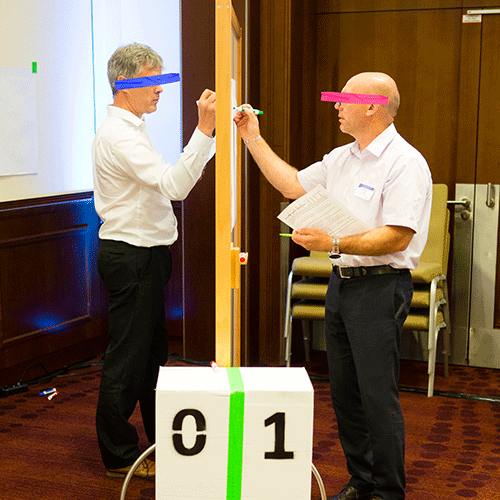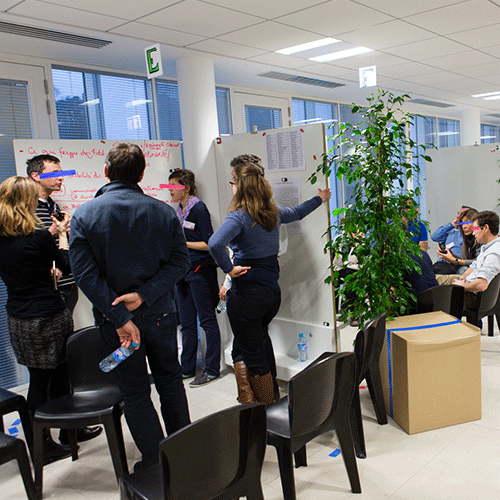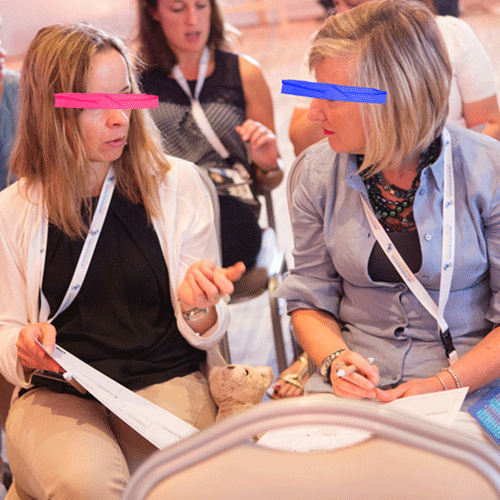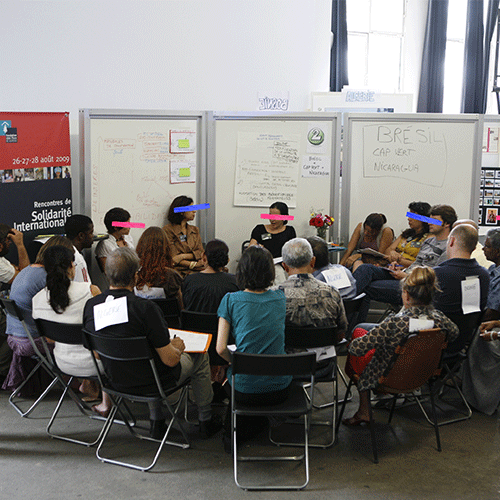The most effective meta-design for designing a productive workshop is Scan-Focus-Act. It’s one of the basics that we draw from MG Taylor. It maintains a productive style of thinking while providing a wide variety of work methods. If you want to get on something really concrete with a group, whether for two hours or three days, Scan-Focus-Act is the best guide to good design (for more information, check out our friend Philippe Labat’s book, Developing collective intelligence).
In collective intelligence, a robust approach means you can be both creative and effective.
MG Taylor, the workshop design approach we use
All Wild is the Game facilitators follow the MG Taylor approach when designing their workshops. This method has been played over and over again for years with hundreds of companies. Its greatest advantage is that it is integrative: it makes the most of other methodologies that were also developed not far from Palo Alto in the 1980s and 1990s. There are therefore similarities with design thinking, lean startup and other agile methods.
Scan-Focus-Act for an effective workshop
Scan-Focus-Act in less than 100 words
The Scan phase prepares the Focus phase. We define and explore the problem, the context, the issues. We launch the group dynamic and create the conditions for collective intelligence to flourish. After a good Scan, the group is efficient enough to address possible solutions. This is Focus. It explores the options and parameters that need to be considered in order to make the right decision. In Act, we produce and commit. A solution has emerged, it must be made robust and the group prepared to implement it. That’ s it for the summary in less than 100 words 🙂
Design Thinking, Agile, Lean Startup, Sprint & Co
The MG Taylor method shares many common features with the methodologies that have become essential in the last 20 years. This includes, in particular, iterative mode, prototyping, a high level of collaboration, pragmatism, the role of the end customer and the human being (to use a big word). The MG Taylor approach is used to integrate and apply these methods directly in our workshops. Some of our modules are directly inspired by these processes.
Do you need to become agile? Don’t just talk about it, experience and put into practice the principles of agility in a workshop! Do you want to do sprints like Google? We help you design sprints suited to your context and your specificities. Does your boss swear by design thinking, but it’ s not suited to your current environment? We’ll know how to use the method to address your challenges.
World Café, Hackathon, Open Forum, Lego Game, etc.
The strength of these facilitation methods lies primarily in their simple yet powerful format. However, since they are generic, they only function well in a given context, usually quite specific. In other cases – maybe yours – there is often something better we can do: perhaps a less common format more suited to your needs. Or three well-chosen and well thought out one-hour modules. There are many ways to significantly improve the effectiveness of a generic format (visualization, detailed instructions, timing, production materials, etc.). But that’s more than our method, it’s what we’ve been doing for 10 years 🙂
2009
The year Wild is the Game was established

+300
collaborative workshops

+30 000
participants






